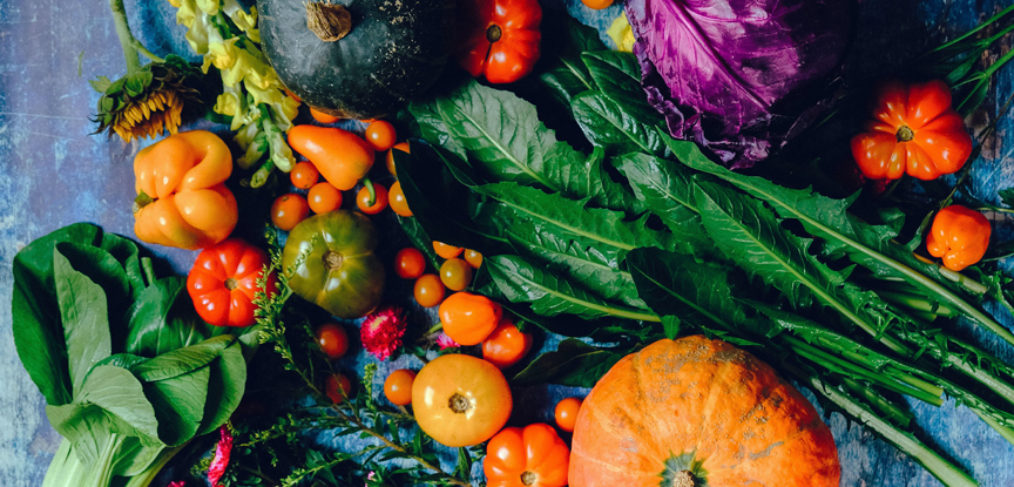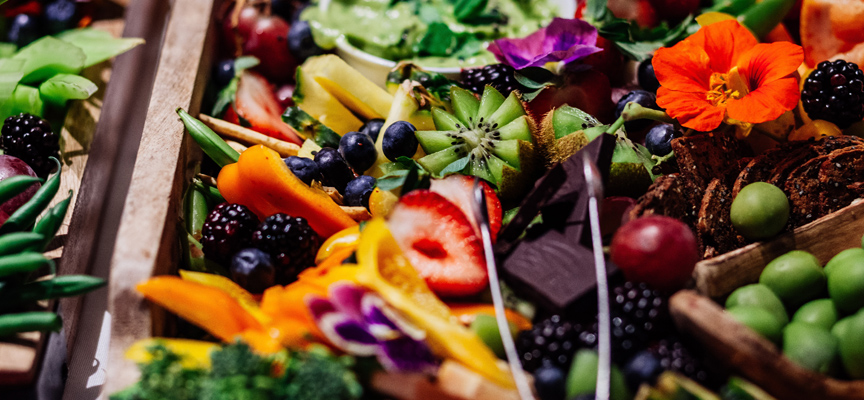
What Is an Anti-Inflammatory Diet?
You hear the word “inflammation” and you might think of a sprained ankle or swollen feet after a hard day’s work, but inflammation is much more common (and more harmful) than that. Any of the soft tissues in your body can become inflamed and you may not even know it. This type of inflammation has been linked to depression, weight gain, skin conditions, the speed with which Alzheimer’s progresses, and even heart disease. Scientists are even studying the effects of inflammation related to COVID-19 infections. Helping to control this chronic condition through an anti-inflammatory diet is one of the easiest and most comprehensive ways to avoid some of these issues and help you lead a healthier life.
Health expert Dr. T. Colin Campbell has promoted healthy, plant-based diets for years as a way to combat inflammation. Now, in the fight against COVID-19, Dr. Campbell has declared that for COVID-19 patients “switching to a whole food plant-based diet” could “lessen the severity of disease symptoms while simultaneously increasing COVID-19 antibodies” in what he calls a “win-win effect.”
Understanding Chronic Inflammation
While most of us would consider inflammation a bad thing, “. . . our bodies use inflammation as a signal for healing,” says Dr. Mari Ricker, MD, professor of family and community medicine at the University of Arizona. This type of inflammation is an automatic and natural response to foreign objects, bacteria, and viruses inside our bodies. That’s why nicks and cuts turn red and swell—your body is attempting to fight off those harmful bacteria by flooding the site with antibodies, white blood cells, and other immune system compounds.
This is not the same as chronic inflammation—the type of inflammation that has been linked to the dangerous health conditions mentioned above.
Where does this chronic inflammation come from?
Fat cells generate inflammatory substances that can affect the surrounding soft tissues in your body. So, it stands to reason, the more excess fat you carry, the more inflammation you’ll likely suffer from.
Physical and mental stress can also cause your body to create theses inflammatory substances.
Lack of sleep has also been linked to unhealthy levels of chronic inflammation.
Even the foods you eat can cause inflammation.
While you can take measures to reduce the stress in your life and regulate your sleep cycle, it’s often easier for people to adopt an anti-inflammatory diet to combat their chronic condition.
How Well Does an Anti-Inflammatory Diet Work?
Altering your eating habits is enough to make real, lasting changes to your health. A 16-year study published in a 2018 edition of the Journal of Internal Medicine found that people who ate an anti-inflammatory diet had a 20 percent lower risk of dying of heart disease than those who continued to eat whatever they wanted. In addition, those on the anti-inflammatory diet were at a 13 percent lower risk of contracting cancer.
Combined with other health benefits, those on an anti-inflammatory diet enjoyed an overall risk of dying, by any cause, that was 18 percent lower than those in the study’s control group.
What Foods Make Up an Anti-Inflammatory Diet?
It’s easy to spot foods with anti-inflammatory properties. These foods often tend to be more colorful foods, more fragrant, and closer to their naturally harvested state. Some examples include nutrient-dense fruits and veggies, whole grains, oily fish (like salmon), and potent spices like turmeric, ginger, and cayenne.

10 of the Most Potent Anti-Inflammatory Foods
Olive Oil (Preferably Extra Virgin) – Olive oil is rich in Omega-3 fatty acids and monounsaturated fats which have anti-inflammatory effects. Unrefined extra virgin olive oil is especially rich in phenolic compounds that have been shown to reduce inflammation and decrease joint cartilage damage.
Blueberries – These bright berries are packed with quercetin, an extremely potent antioxidant.
Green Tea – Green tea contains high levels of epigallocatechin gallate (also known as EGCG). This is another type of polyphenol antioxidant compound that provides powerful anti-inflammatory benefits.
Leafy Greens – (the darker the better.) Greens such as spinach, collard greens, and kale contain flavonoids (another type of potent antioxidant) that combat chronic inflammation.
Tomatoes – Lycopene is one of the most potent naturally available antioxidants and it has been clinically proven to reduce inflammation of brain tissue. Bright red tomatoes are loaded with this essential nutrient.
Nuts – Certain types of nuts (like walnuts, almonds, and hazelnuts) contain high levels of essential Omega-3 fatty acids and other healthful compounds like critical phytonutrients, all of which have anti-inflammatory properties.
Fatty Fish – Salmon, sardines, and mackerel are just a few of the ocean fish that are naturally packed with Omega-3 fatty acids.
Plant-based diet? Not to worry, there are quality fish oil supplements that can help you get essential Omega-3 fatty acids.
Beets – As with most plants, beets get their anti-inflammatory properties from the compound which gives them their color. In this case, it’s an antioxidant called betalain. This powerful compound has even been shown to help repair cells damaged by chronic inflammation.
Chia Seeds – These little powerhouses provide a 1-2-punch. They’re high in both Omega-3 and natural fiber, which has the added benefits of helping you feel fuller longer and flushing unhealthy compounds from your body before they’re absorbed.
Pineapple – Have a sweet tooth? Pineapple contains a powerful enzyme called bromelain which is also a natural anti-inflammatory agent.
What Is the Best Anti-Inflammatory Diet?
Research has shown that creating a customized diet that includes these foods rich in antioxidants and anti-inflammatory compounds coupled with strategic fasting provides the most powerful anti-inflammatory benefits.
Why fasting? A study conducted by researchers at Yale University found that when you fast your body naturally produces a chemical called BHB. This compound interferes with inflammatory processes and prevents problems before they start.
Your gut biome (the bacteria in your digestive system) also plays a powerful role in combatting inflammation. These little workhorses provide the most benefit when “they have nothing else to focus on”, which means when you give them a break from the digestion process, they can help you automatically combat inflammation.
How long do you need to fast between meals? Studies have shown that leaving 14 to 16 hours between meals is the most beneficial. The easiest way to do this is space your evening meals and breakfast out so the majority of your “fast” is during your sleep cycle.
You can also use fasting aids such as The Hollywood 48-hour Miracle Diet®, which provides your body the essential nutrients it needs while giving your digestive system a break from deconstructing solid foods for two days.
Don’t feel you can fast for 48 hours the first time? The Hollywood 24-Hour Miracle Diet® provides all the same benefits over 24-hours.
Combine these great anti-inflammatory juice cleanses with healthy foods the rest of the week to give your body the support it needs to combat harmful, chronic inflammation and start enjoying a healthier life!
